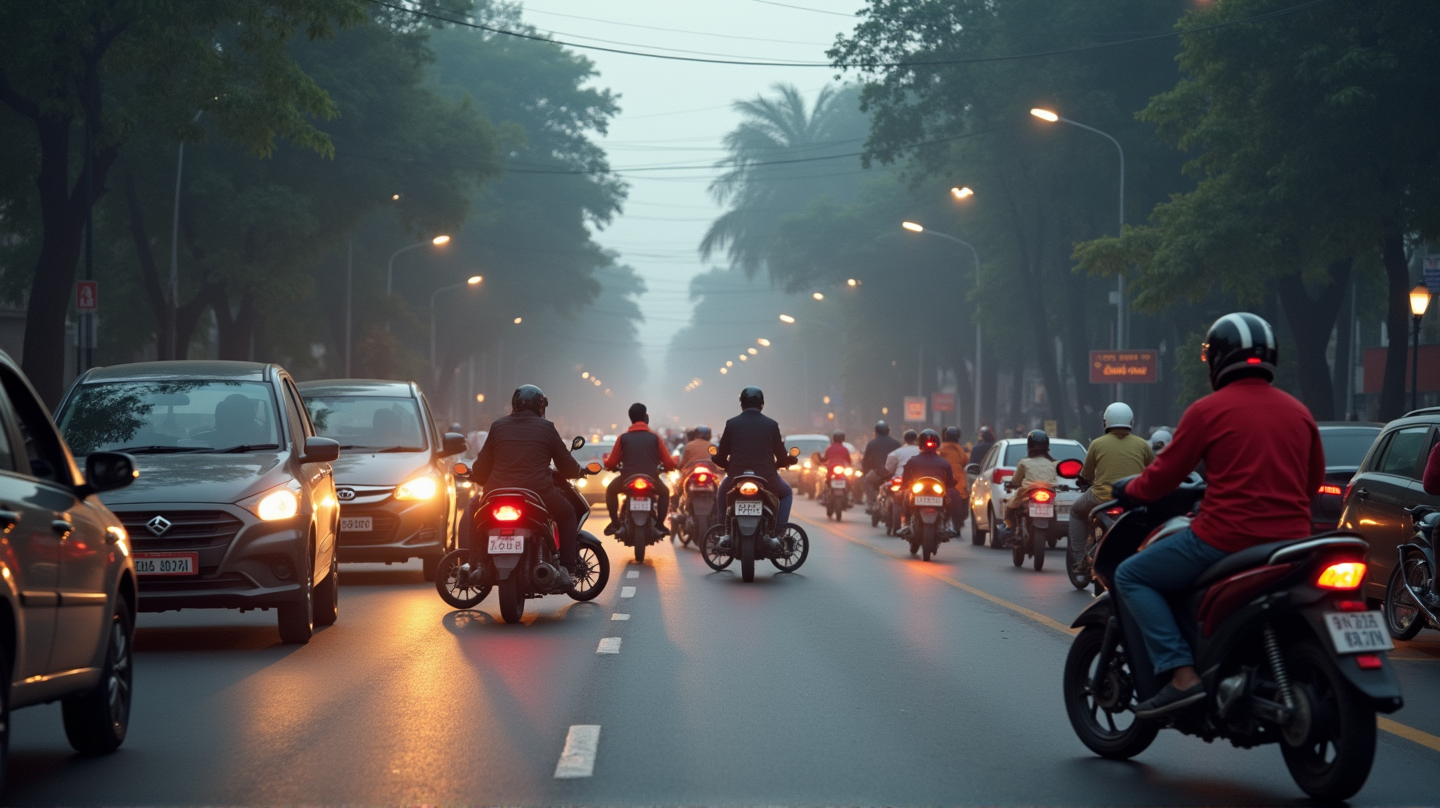Delhi's Traffic Revolution: Citizens to Report Faulty Signals via App
Delhi Traffic Police plans app feature to let citizens report faulty signals, boosting efficiency and road safety.

In the bustling streets of Delhi, chaos often ensues when traffic signals fail, transforming orderly crossings into chaotic maelstroms with vehicles and pedestrians caught in a cacophony of honks. The Delhi Traffic Police is planning an innovative solution: empowering citizens to be the eyes and ears that report malfunctioning signals through a new feature in the Traffic Prahari app.
The Daily Struggle
Picture this: A junction, usually regulated by strict green, amber, and red—now a free-for-all with signals on the fritz. Vehicles halt, abruptly press forward, and mix into a manic discord. In these instances, traffic constables are left to bravely manage the storm. Unfortunately, these scenarios are a common sight in Delhi, where over a thousand traffic signals stand, some vulnerable to breakdowns, leading to congestion and risks of accidents.
The App as a Game Changer
Delhi Traffic Police aims to transform the Traffic Prahari app into a powerful tool for citizens. The discussions about adding a feature for reporting faulty signals are already underway, promising a streamlined and efficient approach to traffic management. Special CP (Traffic) Ajay Chaudhary said, “Once the technical details are worked out, we will move ahead. If successful, this will not only speed up repairs but also open the door to better planning in the long run.”
A Proven Track Record for Traffix Prahari
Launched in 2015 and updated in 2024, Traffic Prahari has effectively turned nearly one lakh Delhiites into digital traffic marshals, marking about six lakh violations. From helmetless bikers to misparked cars—citizens have built a robust enforcement network. Yet, until now, alerts about faulty signals have relied on more fragmented avenues like calls, patrol reports, and social media complaints.
Bridging the Gap in Traffic Safety
With the proposed app feature, signal malfunctions could be reported with just a few clicks—feeding directly into a centralized system. This real-time data collection would potentially create a live database, enabling prioritization of urgent repairs and long-term strategic planning. “There are multiple ways to receive complaints, but no single, synchronized channel. That’s where Traffic Prahari could step in,” Chaudhary remarked. As stated in The Economic Times, if successful, it marks a significant advancement in community-driven traffic management and safety in Delhi.
Innovative citizen engagement strategies could transform the urban landscape, making navigational nightmares a relic of the past. The inclusion of citizen inputs in daily traffic management promises to heighten efficiency and safety on Delhi’s roads, paving the way for smoother commutes.





